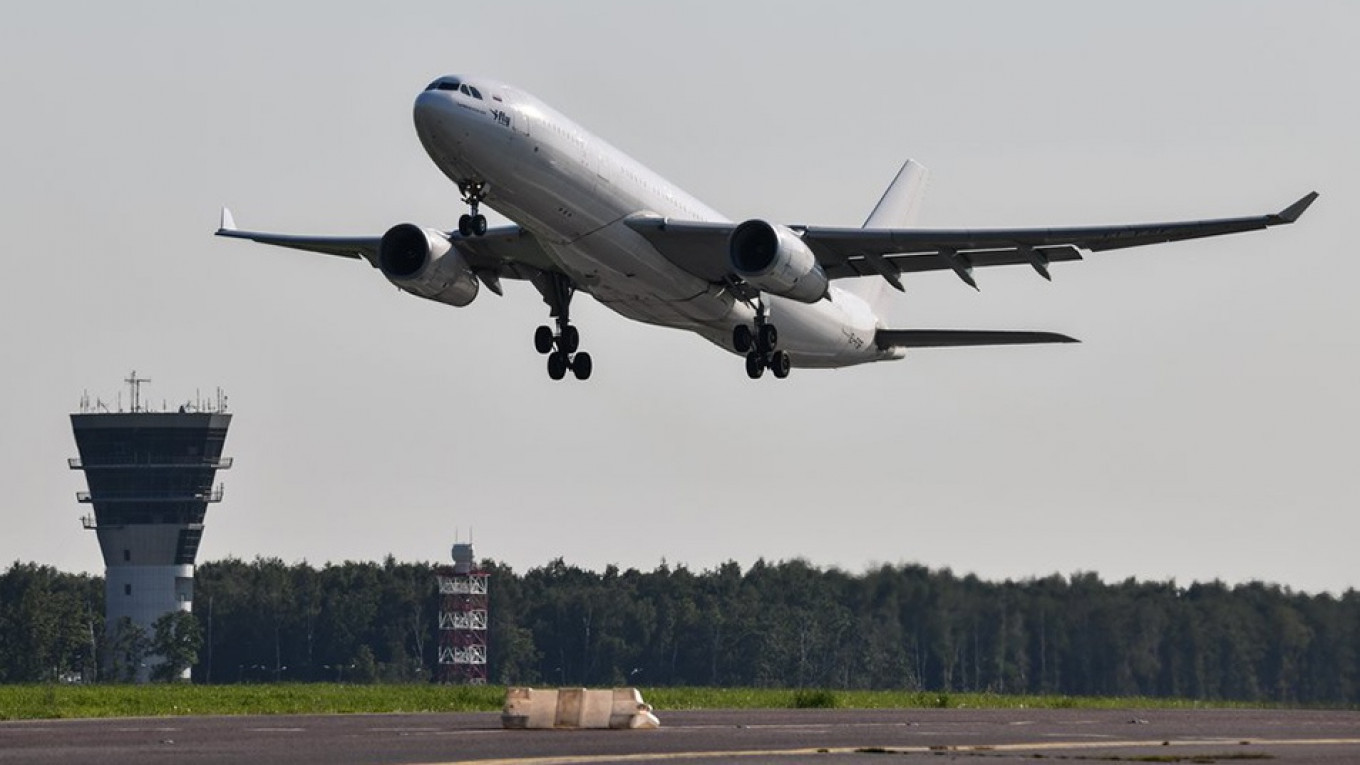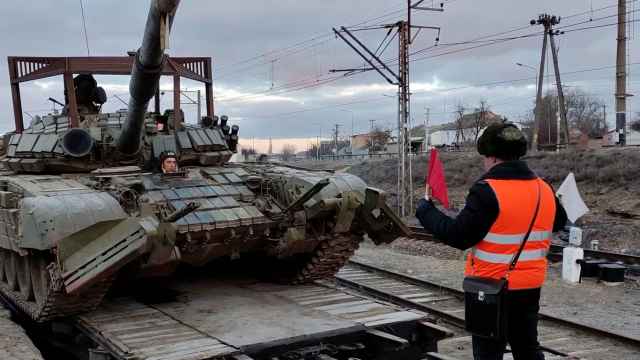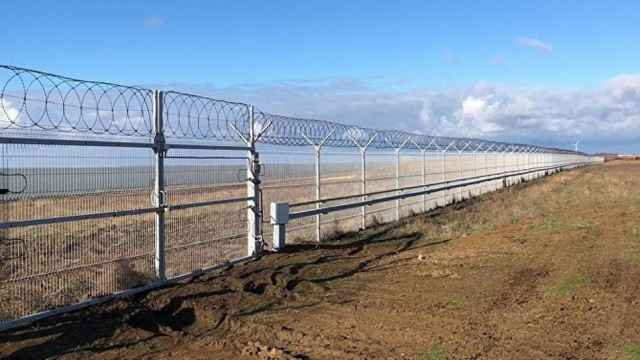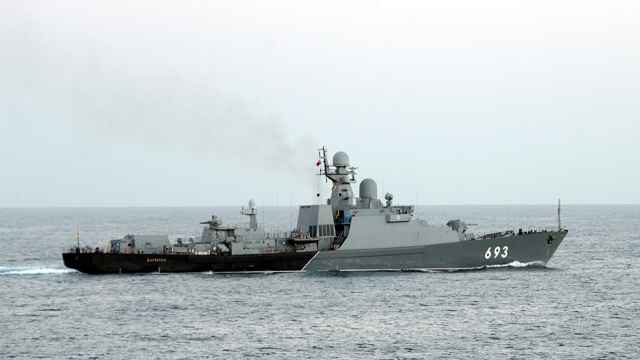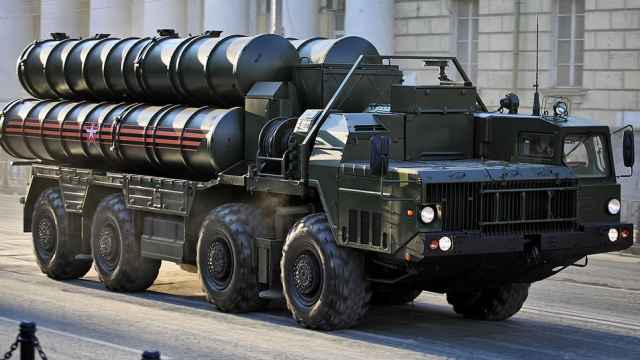Russia has blocked flights over annexed Crimea and the Black Sea for naval and aviation drills this week, Interfax reported Tuesday, citing an alert to pilots.
The so-called “notice to airmen” (NOTAM), which is filed to warn aircraft pilots of potential hazards, reportedly applies to territorial waters off the southern coast of Crimea and parts of international waters off of the Black Sea from April 20-24.
“The area has been declared temporarily dangerous for aircraft flights,” Interfax quoted the notice as saying, adding that the restrictions apply at a maximum altitude of 19,000 meters.
More than 20 Black Sea Fleet warships conducted joint drills with Sukhoi Su-25 attack aircraft from the Southern Military District following the NOTAM alert, Interfax reported later Tuesday.
Kremlin spokesman Dmitry Peskov called the flight restrictions an “absolutely normal world practice” in a press briefing Tuesday.
Russia’s Defense Ministry previously said it closed off navigation in parts of the Black Sea to foreign military and official ships from mid-April until the end of October.
Britain reportedly plans to send two warships to the Black Sea in May to show solidarity with Ukraine after the U.S. Navy abandoned its initial plans to deploy two warships in the area.
The flight and navigation closures come as Russia has amassed, according to EU estimates, more than 100,000 troops near Ukraine and in Crimea. Observers and the White House call it the largest troop buildup since the conflict between Ukrainian forces and pro-Russian separatists first broke out in 2014.
The U.S. Federal Aviation Administration (FAA) over the weekend issued a NOTAM alert warning U.S. airlines to exercise “extreme caution” over areas near the Russia-Ukraine border as tensions surge over Russia’s military buildup and renewed clashes in eastern Ukraine.
A Message from The Moscow Times:
Dear readers,
We are facing unprecedented challenges. Russia's Prosecutor General's Office has designated The Moscow Times as an "undesirable" organization, criminalizing our work and putting our staff at risk of prosecution. This follows our earlier unjust labeling as a "foreign agent."
These actions are direct attempts to silence independent journalism in Russia. The authorities claim our work "discredits the decisions of the Russian leadership." We see things differently: we strive to provide accurate, unbiased reporting on Russia.
We, the journalists of The Moscow Times, refuse to be silenced. But to continue our work, we need your help.
Your support, no matter how small, makes a world of difference. If you can, please support us monthly starting from just $2. It's quick to set up, and every contribution makes a significant impact.
By supporting The Moscow Times, you're defending open, independent journalism in the face of repression. Thank you for standing with us.
Remind me later.


